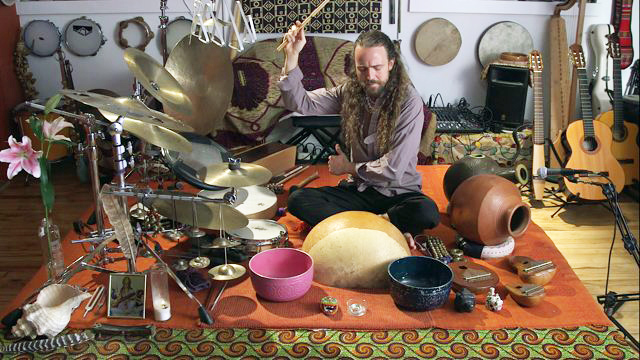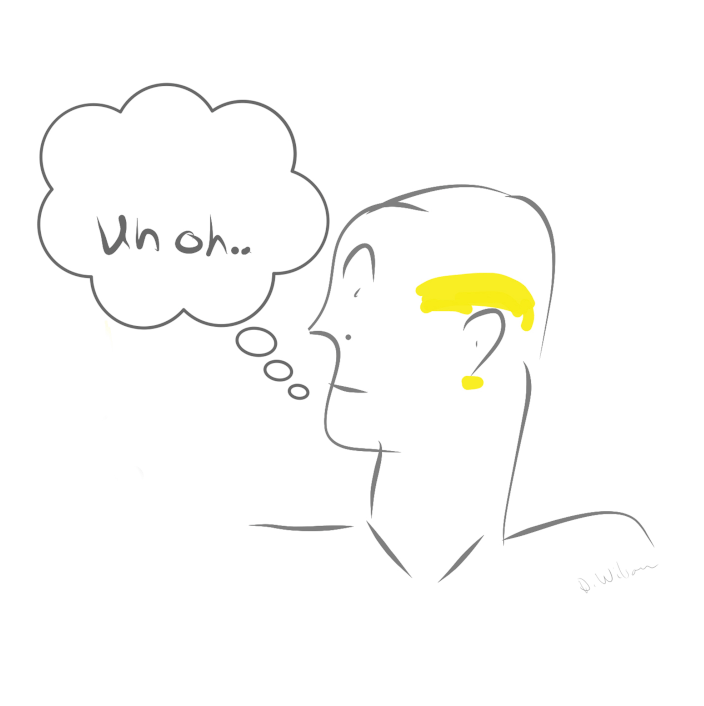The Good Brain Blog
Good Brain, Sleep and Life
A brain thing: I never intended to love opera. It felt pretentious and fake. That started to change when I let myself NOT like it even though many people I know do, they say... I got honest deep inside: “I don’t care who likes this screaming but, not me.”
As a therapist and executive coach, I often find my clients grappling with the unique challenge of the annual holiday work party. The anxiety starts days before the event, and the thought of navigating conversations and crowds can be downright terrifying. Whether at the top of the organizational hierarchy or nestled in the middle, stepping outside our comfort zones to be surrounded by everyone in the workplace is overwhelming. The fear of feeling awkward and alone makes the entire prospect seem less than enjoyable.
In a world that can feel quite stressful and like everyone wants something from you, let’s talk about wonderful, nourishing, and yummy sleep. A bit of a problem for many.
The holiday season, a mix of joyous reunions and weighty obligations, often ushers in a blend of good and bad stress. Amidst connecting with loved ones, exchanging thoughtful gifts, and attending parties, we may also feel the pressure to meet numerous seasonal demands as well as experience the longing for those absent from our orbit this year.
Sports are the greatest test of concentration, flexibility and problem solving. Increasingly we see more reports of competitive athletes drawing on the benefits of biofeedback and neurofeedback (biofeedback for the brain).
Many athletes including Kirk Cousins , Kerri Walsh-Jennings, and Lucas Giolito have shown the promise of using neurofeedback in sports. So, how does neurofeedback affect a person's ability to play sports?
Einstein has been a hero of mine since I was a kid. The reasons for that have changed over time. Early on, I just loved his unruly hair, how both rebellious and distinguished he looked at the same time. Also, he was considered a true genius for his scientific discoveries, like E= MC squared — whatever that meant.
This article will help you celebrate Einstein's genius and cultivate your own.
I was planning an event with a friend, and he said: “Well, as you know, my brain works much faster than yours…” That was like a red flag being waved in front of me.
Internal scream: “WHAT?!”
For many years, I wanted to be a member at Art Institute of Chicago. I thought about it each time I received one of their tasteful email invitations. I imagined if I were a member, I would just go there, with no excuse not to, and it would be a wonderful part of my life. Membership was one of those things that sounded good, but I never did it.
What happened to transform a brash, fearless world traveler and adventurer into a shy and paranoid man as he approached 60 and died at 61? After 17 years of meticulous research, forensic psychiatrist Andrew Farah addresses this question in his recent book, Hemingway's Brain.
By Diane Wilson from Viewpoints in the Wednesday Journal.
Get your brain in shape this summer at our customized Summer Brain Boot Camp. Learn more here.
My review of the movie "Concussion" appeared in the Wednesday Journal on February 2. Because of my work helping people function at their best, this film was an important one to see and one that truly deserves more attention from the Academy, particularly for Will Smith's performance.
Sarah (not her real name) was an insomniac.
When trying to close her eyes and relax each night, a freight train was rushing by in her mind, each car filled with ideas, fears, anxieties; ideas, fears, anxieties; ideas, fears, anxieties. Instead of bringing relief, sleeping pills and alcohol had only pulled her into an added problem with addiction.
When I talk with people about my neurofeedback work, the response is often the same: "That's amazing, you do brain scans? I'd like to do that some day."
Now you have the opportunity.
Anyone who has ever driven I-80 any long distance, especially from Chicago going east, will testify to the monotony and beauty of the trip. The peaceful journey through farmland was a sharp contrast to the intense, fast-paced conference on innovations in neuroscience and treatment at my Cleveland destination.
Lately I've been immersing myself in the percussion music of Spanish composer and performer Nacho Arimany. He's featured in the new brain training tool I am almost (but not quite) ready to offer my clients called InTime. From Advanced Brain Technologies, with whom Nacho collaborated to create this tool.
By Diane Wilson from Viewpoints in the Wednesday Journal.
We all know someone who went through an event like a car accident, military tour, or sports injury and never seems quite the same. They often turn inward and make their world very small, withdrawing from friends and family. Life feels too complicated, and their self-esteem takes a beating. They look at life from the outside, wondering if they will ever feel normal again. They see doctor after doctor who can't tell them what's wrong.
Life & Executive Coaching
Since the COVID-19 pandemic began: Have you lost your job, had your hours dramatically reduced, or taken a pay cut? Or, do you constantly wonder if such a fate is just around the corner? Be assured you are not alone if you are suffering from employment insecurity. Keep reading for stories of inspiration and seven ways to help pivot your brain to a better situation.
A Complimentary Special Offering
Are you worried about COVID-19 and related, your health. family, or job? As we work our way through this unprecedented time of global pandemic. there is one thing for certain:
Panic makes everything worse.
Holidays come with high expectations for ourselves and others. Good stress. Bad stress. No matter what the brain may say, the heart longs for happily sitting around a large table with lots of food, family, and friends this time of the year. If this is your life today on Thanksgiving, enjoy it.
There is a link between low levels of melatonin and cancer, specifically breast, ovarian, and prostate. Recent studies show that exposure to light at night can actually increase tumor growth. Melatonin production is suppressed and normal circadian rhythms are interrupted. Learn more about what you can do.
Today is the day before we elect our next president and the world is swimming with vrittis of chitta (swirls of energy), as am I. There is concern about what will happen and how it will affect us all. I can’t have all this in my head and concentrate today. So I am meditating on this:
As a psychotherapist and coach, I say with certainty that many people are stressed now. The constant chaos around who said what outrageous thing and who is telling the truth is like a thick veil of ugliness that weighs heavy. Maintaining good mental health is a bigger project than it usually is.
Here are 8 ways to cope:
Yes, meditation can be a part of brain training. It’s a superpower which helps in many ways. It’s a wonderful supplement to the primary component of my practice: neurofeedback. And it’s an excellent aid for my clients who are focused on peak performance, have anxiety concerns and are dealing sleep issues and ADD.
Have you ever had a boss or been a boss for whom everything was an emotional issue?
As a leadership coach, one major pattern I often see that gets leaders in trouble has to do with brain function. I'll make this simple. Different parts of the brain do different things. Operating from different locations, particularly the Limbic Brain or Prefrontal Cortex, can help or hurt our efforts.
I became fascinated by memory and trauma after being in a car accident. As you may know, one day I was sitting in my car at a stoplight, minding my own business, and was broadsided by another driver. Of course, this kind of trauma changed my life. But eventually, with the help of family, friends and a great neurotherapist, I mustered the effort to heal and go forward.
A few thoughts from shortly after 9/11/01 that still feel relevant after the San Bernardino attack. Life is growth. Rally courage to not become hardened and deeply fearful. Be careful in your judgment of others.
We all struggle with the new code word—team—but what does it mean? How can you be an effective team member when it seems no one else knows either?
Many of us have been in situations where we are supposed to be a team member but the team isn’t working. What can you do personally? Here are some ideas:
Why develop skill in managing up? They’re the ones who should be managing us better! They get paid more! And further, who wants to be a “suck-up”?
One of the most valuable skills you can have is being able to manage those you report to.
So how do we best do that? Here are a few ideas:
Whether we’re employed or job-seeking, there may be times when we wonder if we’re sabotaging our own progress. We try so hard to do well but insidious little things seem to work against us.
And before we know it, we’ve somehow short-circuited what we were trying to achieve. We lose our keys, forget to bring the resume, or miss a deadline. It’s like having a tail that knocks over things behind us; we turn around to see the disturbing results—too late.
Now tell the truth, have you ever: Read your e-mail while the person on the other end of the phone thought you were listening exclusively to him? Mulled over your lunch break activities while your boss was explaining your next assignment? Drawn a complete blank on what your co-worker just passionately told you about her day?
Minding the moments
The cover of a book is crucial from both the personal and public sides. Personally, it’s so grounding if it feels like a fit. And, from the outside, we hope to represent the story or at least pique the curiosity of the potential reader. A picture really is worth even more than 1,000 words.
Meeting Dr. Dacre Knight on social media was one of the catalysts for creating this podcast series, “Voices in the Pandemic.” My hope was that more people could meet him and people like him to learn about their work and lives during this extraordinary time. His voice may not be the loudest or with messages designed as “clickbait.” Still, it's an important one for more people to hear about — sharing science as well as our human stories.
Yesterday, it was hard to cancel my in-person coaching and therapy appointments. The global public health pandemic instructions are that we do not travel unless necessary to prevent the spread of COVID-19. For me, there is almost nothing like sitting across from someone. The risk of my clients traveling on public transportation or even in cabs was disconcerting so canceling the in-person was the only option.
Eye contact is powerful. It reminded me of another group I attended a while ago. People didn’t look much at others unless it was to exchange glances about someone else (eye-roll type thing). I always felt awful after attending it. After New Year’s Eve, I better understand why.
A health commitment doesn’t have to be hard. That little walk on a day when you’d rather stay inside can reveal a wonderland you’d never want to miss.
Lisa is involved again this year with the exciting One Earth Film Festival which exposes thousands of people to new ideas on our health and relationship to Mother Earth. I asked her to write up a couple blogs on her favorite films featured in the Festival so you can consider them. Check into these, join in and enjoy a community of kindred spirits.
So my niece went crazy at the Dollar Store and TJ Maxx.
The project was to get things for a wellness package to distribute to homeless people over Thanksgiving weekend.
She had done some research on what those living in the streets need most and it was socks and, believe it or not, foot fungus cream. Anyone in the world would feel better in the socks she got.
We got to Macy’s with hopes of touring their magical holiday windows when we were approached by a homeless man asking for money. Vivienne was surprised to have someone talk to us that we didn’t know. When we declined to contribute, she stood still. The crowd was thick and pushing to see the enchanting story land thru the State Street Macy’s windows. She just stood still and looked up at us.
Many people take vacations, love them, but then after returning home, they feel like they are back in the same grind counting down till they can leave again. Here are a few simple suggestions to get the most out of your vacation.
Recently, I had the choice of flying from Chicago to a conference in Minneapolis or driving with a group of cohorts for the 6-hour trip. In the end, I decided in favor of banter and bonding. My husband was baffled, but it sounded like fun to me as it would give my colleagues and me the opportunity to talk, not talk and just be together driving thru the country.
As the Gauguin exhibit winds up a successful run at The Art Institute of Chicago, what can we learn from Gauguin's life and work that could inspire our own lives?
Last week I felt like I hadn't had enough vacation time even though I was just returning from the long holiday break. The fact that it was consistently less than 10 degrees outside certainly was a factor but another was my deep sense of fatigue. My spirits picked up some once in the office. Lots of self-care over time helped too – yoga, Zumba and sleep -- but I still felt tired.
Looking for refuge after a busy, somewhat chaotic pre-holiday season, I latched onto this book I've been wanting to read titled "Real Happiness: The Power of Meditation" by Sharon Salzberg. Here is one of my favorite parts so far:
I love reading before I go to sleep and while traveling on a plane or train. These books are keeping my attention and are honestly pretty inspiring.
Do you ever just feel like you visited too much, ate too much, spent too much money on a vacation and didn’t have a chance to truly recharge yourself?
This is the year of my mother’s passing.
I ask myself, from my training as a psychotherapist and coach and from my humble and flawed background as a daughter and sister, having made all possible mistakes, what I can share that might make life less difficult for you? Here are my lessons learned, so far:














































Turns out, a lot of people give up on their sleep apnea treatment. Why? They just can’t get used to the mask that’s supposed to help them breathe through the night. That was almost my experience too.